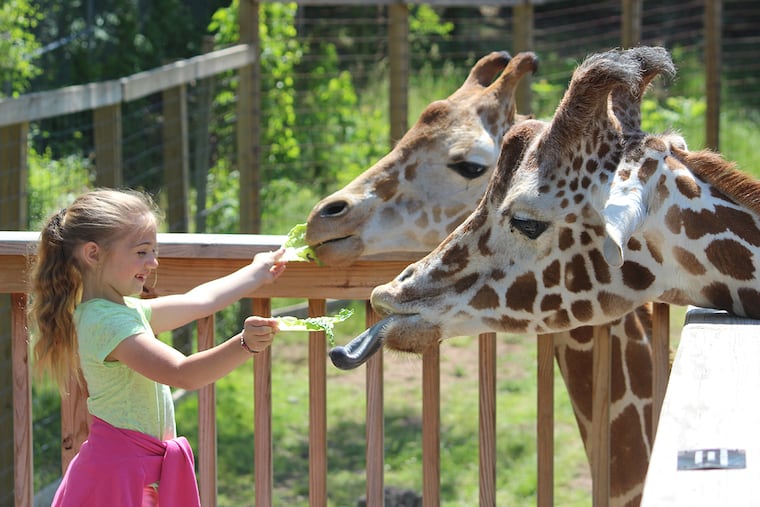Elmwood Park Zoo introduces quiet space, programs for kids with autism
The zoo recently became a Certified Autism Center and will offer sensory mornings.

Parents of children with autism will start seeing a more welcoming environment at Elmwood Park Zoo starting this summer with a designated quiet space and new tailored programming. Recently, the Zoo became the first zoo in the world designated a Certified Autism Center by the International Board of Credentialing and Continuing Education Standards, a partner of the Autism Society of America.
We asked Eric Donovan, Director of Operations at Elmwood Park Zoo, to tell us more about the process of becoming a CAC and what this means for zoo goers.
Why is it helpful for a zoo to have this type of certification?
We are a family institution welcoming hundreds of thousands of guests per year. Each of our guests is unique and has different needs, and we strive to provide as many accommodations as we can. We first heard about the ability to become certified, via Sesame Place's recent designation, and were very excited and interested to see how we could become a part of the program.
We hope that by becoming certified, we will inspire other similar institutions to take that step as well. Autism is the fastest growing developmental disorder, increasing by 600 percent over a 20 year period and affects one in every 68 children. It is important for us as not only just one zoo, but as an industry to dedicate more programming, resources, and accommodations to our guests. This is just one step towards building a better and more welcoming zoo for all!
What is involved in becoming a Certified Autism Center?
Over 80 percent of our guest-facing staff is required to go through an online training course provided through the International Board of Credentialing and Continuing Education Standards, a partner of the Autism Society of America. IBCCES provides resources, training, and continuing education information that allows us to develop and expand upon programming for guests with autism, as well as create new experiences, guides, and spaces for guests with autism throughout the zoo.
What changes will a family experience who has a child with autism at the zoo?
The zoo has already implemented the addition of a "quiet space" in the zoo, located in the south end of our zoo, by the prairie dog exhibit. This is an outdoor, enclosed space, with a tree canopy and privacy fencing, so that children and guests with autism who are experiencing overstimulation have a place that they can go to so they may decompress.
The zoo is also working on expanding its special needs and autism related programming and content, beginning with our Laugh and Learn program, a sensory program designed for children with autism. This program is meant for smaller groups and can be hosted onsite or offsite at another facility.
Some other exciting developments that they zoo is working on expanding are sensory guides, which will give guests a better idea of what to expect at different areas of the zoo, based on a rating scale of the five senses and what impact each of those senses will receive when in that particular area of the zoo. Additionally, we are going to be launching a free tour program for those guests who are visually impaired. A staff member will tour the guest through the zoo and will offer the guest a tour that is much more visually descriptive.
One other great resource we are finalizing is a social narrative of the zoo experience, so that we can better prepare our guests prior to coming to the zoo, on what to expect, from a sensory perspective, as they go through the zoo. We have also added noise canceling headphones and fidget spinners to our list of available checkout resources for guests to use when they need them.
We are also working on a brand new accessibility page on our website, which will provide tips and info for parents before attending the zoo, as well as all of the other content we are currently developing to have available onsite.
Can you tell us more about sensory mornings?
Our sensory mornings are geared specifically toward our guests with autism and those who are very sensory-oriented. We provide an hour to an hour and a half before the zoo opens, which we have dubbed the "Zoothing" hour, where guests can come in before the zoo opens to the rest of the public and experience a quieter, more sensory aware experience. Our first early mornings will be on July 15 and August 19, with early access from 8:30-10:00 am. Registration will open online soon, as we want to limit the amount of guests to make it a more intimate and comfortable experience for all.